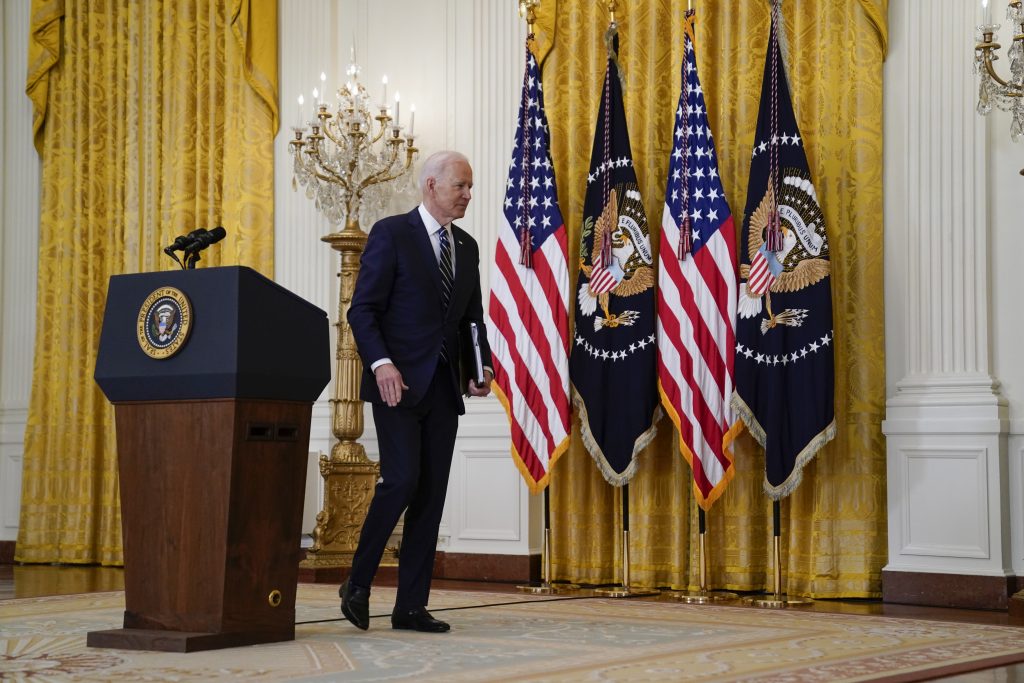Featured Posts

- Index of Psychological Studies of Presidents and Other Leaders Conducted at the Unit for the Study of Personality in Politics
- The Personality Profile of U.S. Supreme Court Associate Justice Brett Kavanaugh
- The Leadership Style of North Korean Leader Kim Jong-un
- North Korea Threat Assessment: The Psychological Profile of Kim Jong-un
- Russia Threat Assessment: Psychological Profile of Vladimir Putin
- The Personality Profile of 2016 Republican Presidential Candidate Donald Trump
- Donald Trump's Narcissism Is Not the Main Issue
- New Website on the Psychology of Politics
- Unit for the Study of Personality in Politics --- 'Media Tipsheet'
categories

- Afghanistan (228)
- Al Gore (2)
- Amy Klobuchar (4)
- Ayman al-Zawahiri (7)
- Barack Obama (60)
- Ben Carson (2)
- Bernie Sanders (7)
- Beto O'Rourke (3)
- Bill Clinton (4)
- Bob Dole (2)
- Campaign log (109)
- Chris Christie (2)
- Chuck Hagel (7)
- Criminal profiles (8)
- Dick Cheney (11)
- Domestic resistance movements (21)
- Donald Trump (31)
- Economy (33)
- Elizabeth Warren (4)
- Environment (24)
- George H. W. Bush (1)
- George W. Bush (21)
- Hillary Clinton (9)
- Immigration (39)
- Iran (43)
- Iraq (258)
- Jeb Bush (3)
- Joe Biden (13)
- John Edwards (2)
- John Kasich (2)
- John Kerry (1)
- John McCain (7)
- Kamala Harris (5)
- Kim Jong-il (3)
- Kim Jong-un (11)
- Law enforcement (25)
- Libya (18)
- Mahmoud Ahmadinejad (6)
- Marco Rubio (2)
- Michael Bloomberg (1)
- Michele Bachmann (173)
- Mike Pence (3)
- Military casualties (234)
- Missing person cases (37)
- Mitt Romney (13)
- Muqtada al-Sadr (10)
- Muslim Brotherhood (6)
- National security (16)
- Nelson Mandela (4)
- News (5)
- North Korea (36)
- Osama bin Laden (19)
- Pakistan (49)
- Personal log (25)
- Pete Buttigieg (4)
- Presidential candidates (19)
- Religious persecution (11)
- Rick Perry (3)
- Rick Santorum (2)
- Robert Mugabe (2)
- Rudy Giuliani (4)
- Russia (7)
- Sarah Palin (7)
- Scott Walker (2)
- Somalia (20)
- Supreme Court (4)
- Syria (5)
- Ted Cruz (4)
- Terrorism (65)
- Tim Pawlenty (8)
- Tom Horner (14)
- Tributes (40)
- Uncategorized (50)
- Vladimir Putin (4)
- Xi Jinping (2)
- Yemen (24)
Links

archives

- November 2021
- January 2021
- November 2020
- October 2020
- September 2020
- August 2020
- July 2020
- April 2020
- March 2020
- February 2020
- January 2020
- December 2019
- October 2019
- July 2019
- May 2019
- April 2019
- March 2019
- February 2019
- January 2019
- December 2018
- September 2018
- August 2018
- July 2018
- June 2018
- April 2018
- March 2018
- February 2018
- January 2018
- August 2017
- July 2017
- June 2017
- May 2017
- April 2017
- February 2017
- January 2017
- December 2016
- November 2016
- October 2016
- September 2016
- August 2016
- July 2016
- June 2016
- May 2016
- April 2016
- March 2016
- February 2016
- January 2016
- December 2015
- November 2015
- October 2015
- September 2015
- August 2015
- July 2015
- June 2015
- May 2015
- April 2015
- March 2015
- February 2015
- January 2015
- December 2014
- November 2014
- October 2014
- September 2014
- August 2014
- July 2014
- June 2014
- May 2014
- April 2014
- March 2014
- February 2014
- January 2014
- December 2013
- November 2013
- October 2013
- September 2013
- August 2013
- July 2013
- June 2013
- May 2013
- April 2013
- March 2013
- February 2013
- January 2013
- December 2012
- November 2012
- October 2012
- September 2012
- August 2012
- July 2012
- June 2012
- May 2012
- April 2012
- March 2012
- February 2012
- January 2012
- December 2011
- November 2011
- October 2011
- September 2011
- August 2011
- July 2011
- June 2011
- May 2011
- April 2011
- March 2011
- February 2011
- January 2011
- December 2010
- November 2010
- October 2010
- September 2010
- August 2010
- July 2010
- June 2010
- May 2010
- April 2010
- March 2010
- February 2010
- January 2010
- December 2009
- November 2009
- October 2009
- September 2009
- August 2009
- July 2009
- June 2009
- May 2009
- April 2009
- March 2009
- February 2009
- January 2009
- December 2008
- November 2008
- October 2008
- September 2008
- August 2008
- July 2008
meta


President-elect Joe Biden and Vice President-elect Kamala Harris meeting with their coronavirus advisory board in Wilmington, Del. (Photo: Amr Alfiky / The New York Times)
On November 15, the New York Times offered a “road map” with “four key elements” as a preview to how a President Joe Biden would govern (Want a preview of President Biden? by Katie Glueck and Thomas Kaplan).
Following is a collection of excerpts from the article, with commentary informed by Joe Biden’s personality profile.
Like President Bill Clinton, Joseph R. Biden Jr. is an empathetic extrovert with a sprawling network of friends. Like President George W. Bush, he maintains strict personal discipline.
Biden’s primary personality pattern pattern is Outgoing/gregarious (a measure of extraversion), complemented by a secondary Accommodating/cooperative pattern (of which empathy is a facet). Thus, the Times’ assessment is generally consistent with empirical analysis of Biden’s central personality traits. However, Biden’s personality profile provides only weak support for the Times’ assertion of “strict personal discipline.” Specifically, Biden’s low score on conscientiousness, in conjunction with an elevated outgoing score, suggests a less disciplined tendency — including a somewhat unfocused, impressionistic cognitive style lacking in substantive detail.
1. Joe Biden consults experts, elected officials, and his inner circle
Mr. Biden relied this year on a blend of expert opinion and conversations with elected officials across the country as he formulated his plans to confront the extraordinary public health and economic crises at hand, offering a glimpse of the kinds of input that may influence his decision-making as president. … Yet for all of the expert advice Mr. Biden will have available to him from the White House, his outlook is also influenced, in broad terms, by a core inner circle of aides, advisers and a few family members — namely, his wife and his sister — who have offered counsel to him for decades.
The Times’ assessment is consistent with empirical analysis of Biden’s Outgoing–Accommodating personality composite, which may be characterized as conciliatory extraversion.
2. Joe Biden can be loose with deadlines
People who have worked with Mr. Biden or know him personally describe him as a gut politician in some ways, but one whose instincts are shaped by conversations with close advisers and allies, by peppering aides with questions and by soliciting a range of opinions, whether from experts in a particular field or from trusted friends and supporters across the country.
This description is consistent with Biden’s conciliatory extraversion, in conjunction with a relatively low score on conscientiousness, which implies that Biden may be slow in reaching closure in his decision-making process.
3. At heart, Joe Biden is a man of he Senate
His experience in the Senate defined his political outlook — one that prizes consensus, civility and bipartisanship as essential to at least some progress — and helps explain why he will enter the White House with great respect for Congress. His insistence that he could “lower the temperature†politically was a central part of his pitch throughout the race, and he relished dismissing Democrats who called such an outlook naïve.
This description is as much emblematic of Biden’s personal orientation as a conciliatory extravert as it is of his decades-long service in the U.S. Senate.
4. Joe Biden has a mandate to be Joe Biden
Do expect to see a president who embraces the traditional role of serving as consoler in chief in times of tragedy. Mr. Biden’s ability to connect with people experiencing grief is one of his most distinctive attributes as a politician, following a car accident that killed his first wife and a baby daughter in 1972, and the death of his elder son, Beau Biden, in 2015.
Biden’s “ability to connect with people” is not only “one of his most distinctive attributes as a politician”; it is also a distinctive feature of his stable, enduring personality pattern, independent from the personal tragedy in his life.
—————————————
Update: May 26, 2021
President Biden’s Fitness to Govern

President Joe Biden leaving the East Room of the White House after a press conference. (Photo: Evan Vucci / AP via Hamodia)
On May 24, 2021, Hamodia — the daily newspaper of Torah Jewry — published an article examining President Biden’s physical and mental capacity to lead (“Is the president fit to serve?” by Rafael Hoffman)
The article quotes Dr. Stuart Jay Olshansky, professor of public health at the University of Illinois at Chicago, who analyzes the longevity of presidents; Dr. Nir Barzilai, director of Albert Einstein College of Medicine’s Institute for Aging Research; Tobe Berkovitz, associate professor of advertising at Boston University, who has worked as a media consultant for Democratic candidates; Dr. John Martin-Joy, author of Diagnosing from a Distance — a study of the history and ethics of the Goldwater Rule — who teaches psychiatry at Beth Israel-Deaconess Medical Center and Mt. Auburn Hospital in the Boston area; and Aubrey Immelman of the Unit for the Study of Personality in Politics, whose commentary is excerpted below.
Aubrey Immelman, an associate professor of psychology at Saint John’s University in Minnesota, published a personality study of candidates in the 2020 election that identified President Biden as having a propensity toward “flexibility, compromise, and an emphasis on teamwork.†Yet it also noted that his tendency to be conciliatory leaves him “vulnerable to manipulation by pressure groups.â€
Professor Immelman expressly avoided hypothesizing as to how his observations bear on the president’s mental health, but noted that his early actions were partially incongruous with the personality study.
“From my nonpartisan personality-in-politics perspective, the most puzzling aspect of President Biden’s first 100 days in office has been my observation that his political behavior has been more activist and less conciliatory than predicted by my personality profile, which is based on data collected since Mr. Biden’s run for president in 2007,†he said.
Related reports on this site
The Personality Profile of 2020 Democratic Presidential Candidate Joe Biden (Aug. 18, 2020)
 The Political Personality of 2020 Democratic Presidential Nominee Joe Biden. Working paper, Unit for the Study of Personality in Politics, St. John’s University/College of St. Benedict, August 2020. Abstract and link for full-text (22 pages; PDF) download at Digital Commons: https://digitalcommons.csbsju.edu/psychology_pubs/130/
The Political Personality of 2020 Democratic Presidential Nominee Joe Biden. Working paper, Unit for the Study of Personality in Politics, St. John’s University/College of St. Benedict, August 2020. Abstract and link for full-text (22 pages; PDF) download at Digital Commons: https://digitalcommons.csbsju.edu/psychology_pubs/130/
The Personality Profile of 2020 Democratic Vice-Presidential Candidate Kamala Harris (Sept. 5, 2020)
 The Political Personality of 2020 Democratic Vice-Presidential Nominee Kamala Harris. Working paper, Unit for the Study of Personality in Politics, St. John’s University/College of St. Benedict, September 2020. Abstract and link for full-text (26 pages; PDF) download at Digital Commons: https://digitalcommons.csbsju.edu/psychology_pubs/131/
The Political Personality of 2020 Democratic Vice-Presidential Nominee Kamala Harris. Working paper, Unit for the Study of Personality in Politics, St. John’s University/College of St. Benedict, September 2020. Abstract and link for full-text (26 pages; PDF) download at Digital Commons: https://digitalcommons.csbsju.edu/psychology_pubs/131/
You must be logged in to post a comment.

